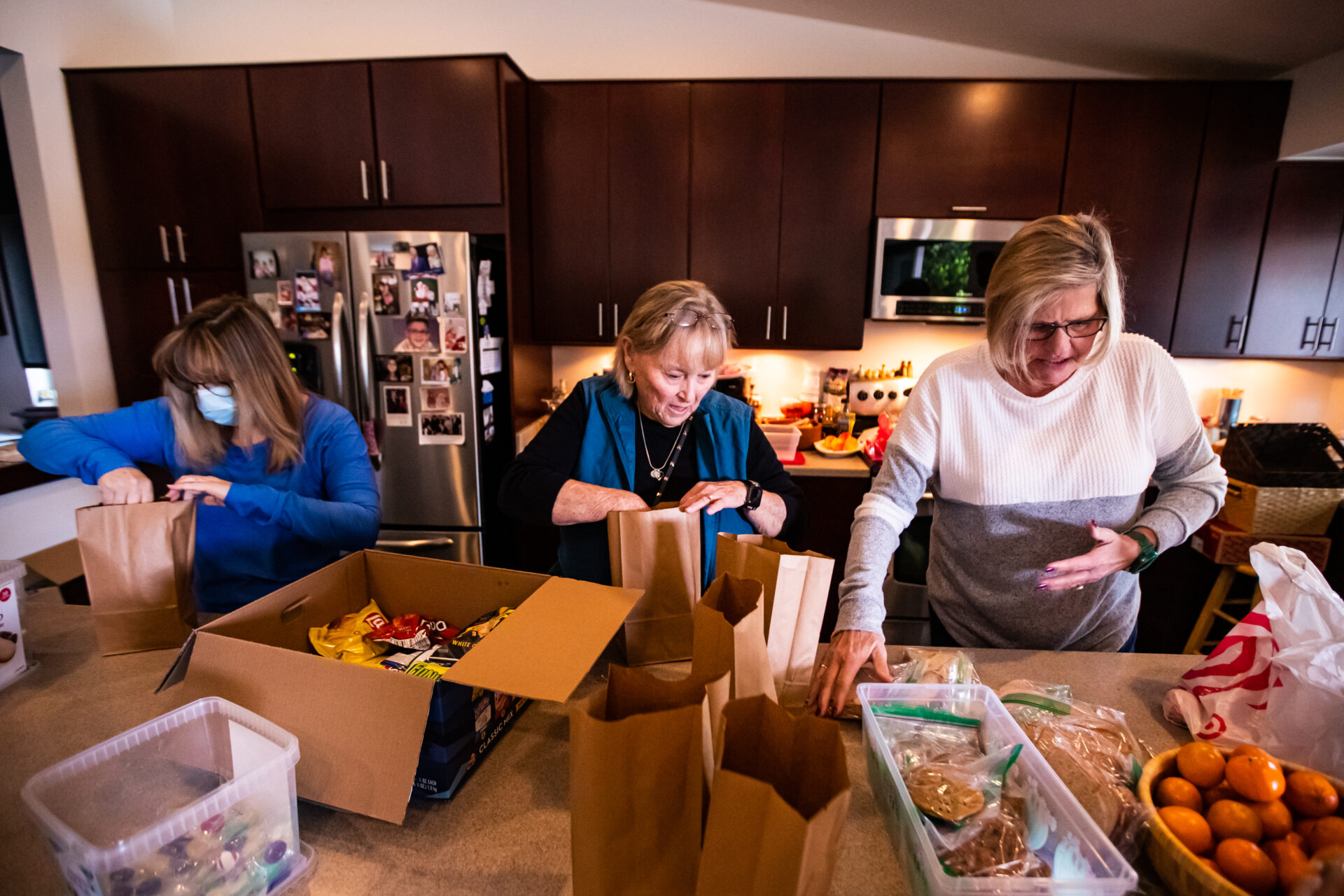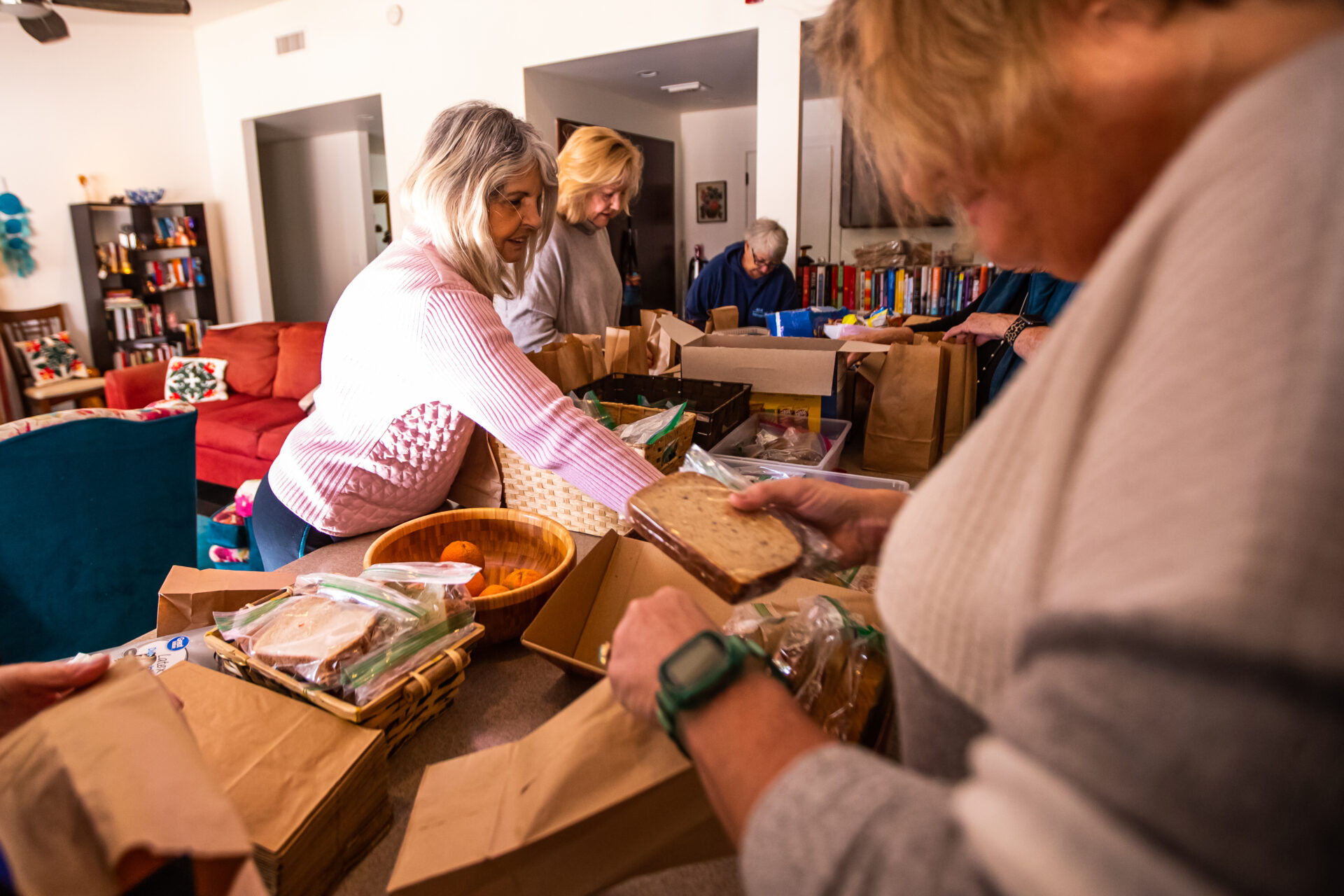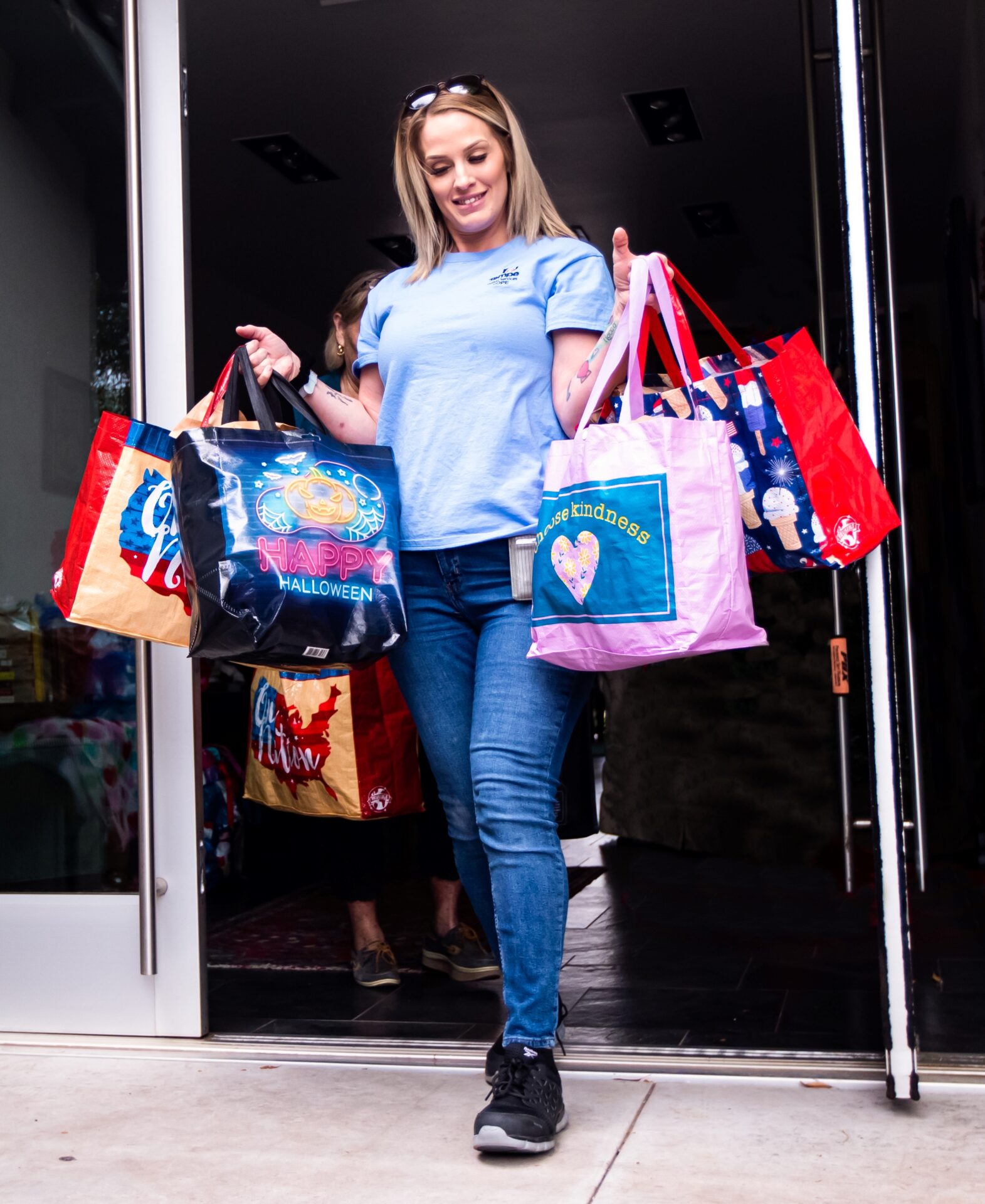
By Meghann Sepulveda, Special for wn.calicoeng.com
Maureen Harrison has lived in The Lakes for 45 years. As a family nurse practitioner, who served in the community-health sector her entire career, Harrison saw the need to provide food to the homeless firsthand.
Now retired, her desire to help those in underserved populations hasn’t fallen to the wayside.

At the start of the COVID-19 pandemic two years ago, a group of kind-hearted women from The Lakes community in Tempe, including Harrison, began providing food to the homeless.
The women, inspired to give back to those who need it most, gathered weekly at their homes to make peanut-butter-and-jelly sandwiches and distribute them at shelters and food banks.
It didn’t take long for word to spread and more women wanted to get involved, too. Today, more than 40 women from The Lakes neighborhood make 150 nutritious sack lunches – which have expanded to include fruit, snacks and even homemade chocolate-chip cookies – to those experiencing homelessness in Tempe.
Connecting to the community
Harrison is part of The Lakes Women’s Club, a group of philanthropic ladies who volunteer their time and resources to worthy organizations. The neighborhood sandwich brigade is among their most impactful community projects to date.

“We have a very active women’s club,” she said. “This has been wonderful for our community.”
The women, who rely solely on personal funds, purchase all the necessary items for the sack lunches and spend several hours every week assembling them. On Tuesdays, the lunches are handed off to the Tempe’s HOPE homeless-outreach team. From there, the food is distributed to individuals and families on the street or at the city’s non-congregate shelter.
“There is a such a big need,” Harrison said. “Throughout this process, I learned that people are really nice and want to help.”
More than just lunch
While the sack lunches feed those who are hungry, they also help Tempe’s HOPE outreach specialists approach those who may be homeless.
“These lunches really help us initiate conversations and engage with individuals who might be at risk or living on the street,” said Jessica Wright, Tempe homeless solutions manager.
Data shows that approximately 400 people are homeless in Tempe. Mayor Corey Woods and City Council implemented a comprehensive human-services-focused strategy to improve the quality of life for those in need.
Last month, the city’s HOPE homeless outreach team used additional funding support to expand, now with 11 certified behavioral-health technicians assigned to geographical regions of Tempe seven days a week.
Wright said those initial interactions are crucial to opening lines of communication to determine if a person needs help.
“Once an individual can accept shelter, there are plenty of resources available to help them gain access to food stamps, find a job and eventually move out on their own,” Wright said.
More information about Tempe’s effort to eliminate homelessness or support homeless solutions: Jessica Wright at JessicaWright@tempe.gov.


Ms. Wright and the Tempe HOPE Team have a failure rate of over 80% with their outreach efforts. There is no carrot or stick, so the homeless can repeteadly decline service offers without any consequences. Harm Reduction policies such as these and Housing First are demonstrated failures that don’t help the homeless (24 died in Tempe in 2020) and negatively impact quality of life for the non-homeless as well as environmental damage to waterways and wildlife.